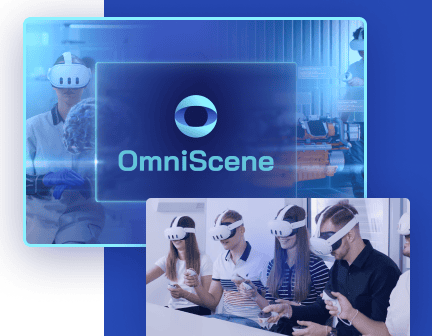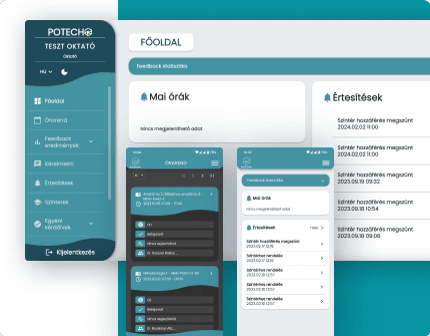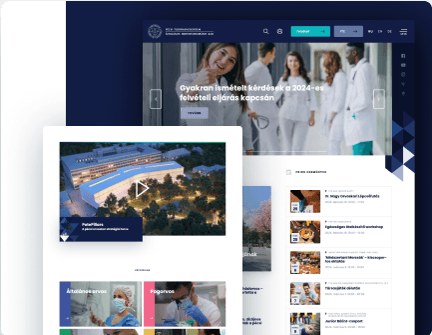Telemedicine Assistant
Web development
Software Development

A comprehensive telemedicine software solution with integration of third-party diagnostic devices.
The Challange
The Hungarian Charity Service of the Order of Malta delivers healthcare to communities in greatest need through mobile clinics equipped with state-of-the-art medical devices.
To effectively manage complex operations, they required software that facilitates process management, nationwide coordination of examinations, integration of diagnostic tools, and seamless video conferencing.
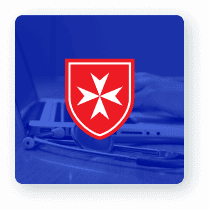

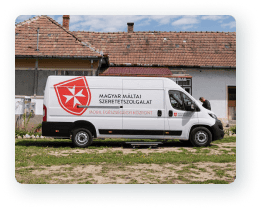
The Solution
The problem-solving process began with a thorough survey and UX research, which included evaluating previously used solutions and identifying the needs and pain points of different user groups. Based on these findings, we designed the user journeys, considering the distinct requirements of patients, on-site assistants, doctors, and care coordinators managing nationwide operations. Prior to development, our solutions were validated and refined through usability testing.
The key technical challenge was ensuring continuous communication across multiple video channels and integrating third-party smart diagnostic tools. Additionally, we had to address offline data storage and subsequent automatic synchronization of measurements in regions with limited infrastructure.
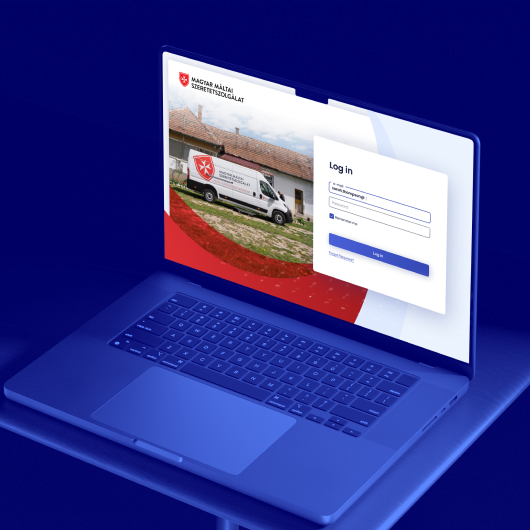
Remote Diagnostics
Through the HL7 protocol, we integrated third-party smart devices into the system, with an easily expandable list. Devices from leading industry manufacturers, such as Mesi and Norma, are user-friendly and support remote use of tools like stethoscopes, EKGs, spirometers, blood pressure monitors, blood analyzers, and stethoscopes.
For measurements initiated with different types of devices, we established a standardized process, and created tabbed interfaces to display the results. New measurements are shown on a new tab for each device. Diagnostics can be activated during video conferences, displaying new measurements, enabling a more comprehensive diagnosis by remotely connected doctors.
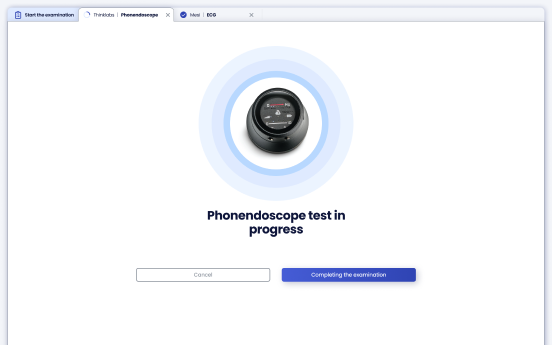
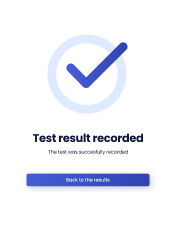
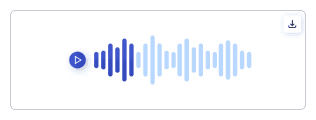
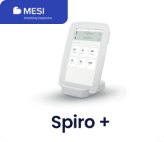

Calendar & Bookings
The scheduling system had to meet several specific requirements due to the complexity of the service.
A key consideration was that care coordinators needed to see the "big picture" in the calendar, while doctors and assistants should only have access to the bookings and information relevant to their own schedules.
In addition to the varying complexity of views, the system had to support the management of booking periods for care coordinators and the segregation of predefined regions, which are essential from a logistical perspective.
The system also had to be capable of displaying multiple time slots within a single day and multiple entries within a single time slot. This was achieved with a fully dynamic, zoomable calendar interface, which can be further optimized with advanced filtering options. These features ensure easy management, even in a fully booked calendar.
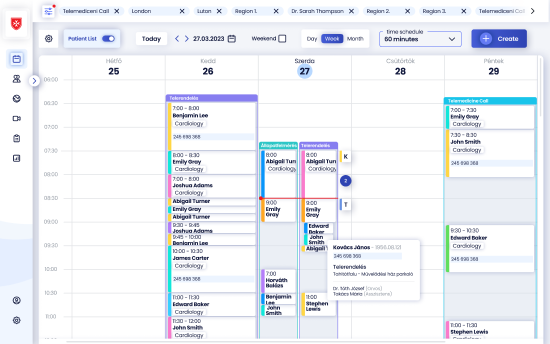

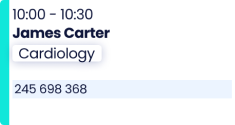
Videconference
The conference system, specially optimized for telemedicine, ensures seamless communication between doctors and patients, regardless of their location. At the examination sites, assistants can set up multiple cameras and monitoring devices to facilitate real-time patient observation. Previous test results are also accessible during the calls.
With separate, simultaneous video streams, doctors can choose which information to view, while ensuring that only relevant details are shown to patients.
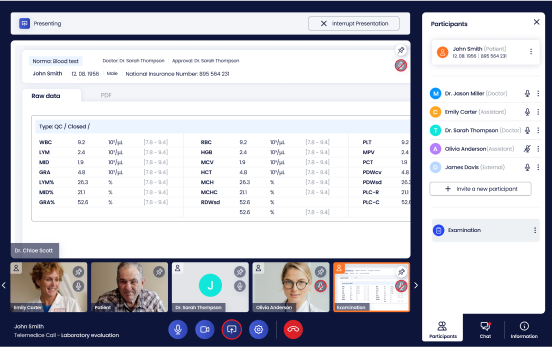


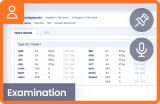
Technológiák
To enable the client application across multiple platforms (web, desktop, macOS, Windows), we opted for cross-platform technologies.
Given the need for secure handling of sensitive data and reliable performance in critical situations, we implemented well-established frameworks that comply with industry standards.
A major challenge was ensuring seamless communication between edge devices and the server, alongside the integration of complex cross-platform features. By using consistent technologies for both edge and server components, we ensured smooth and reliable system functionality.



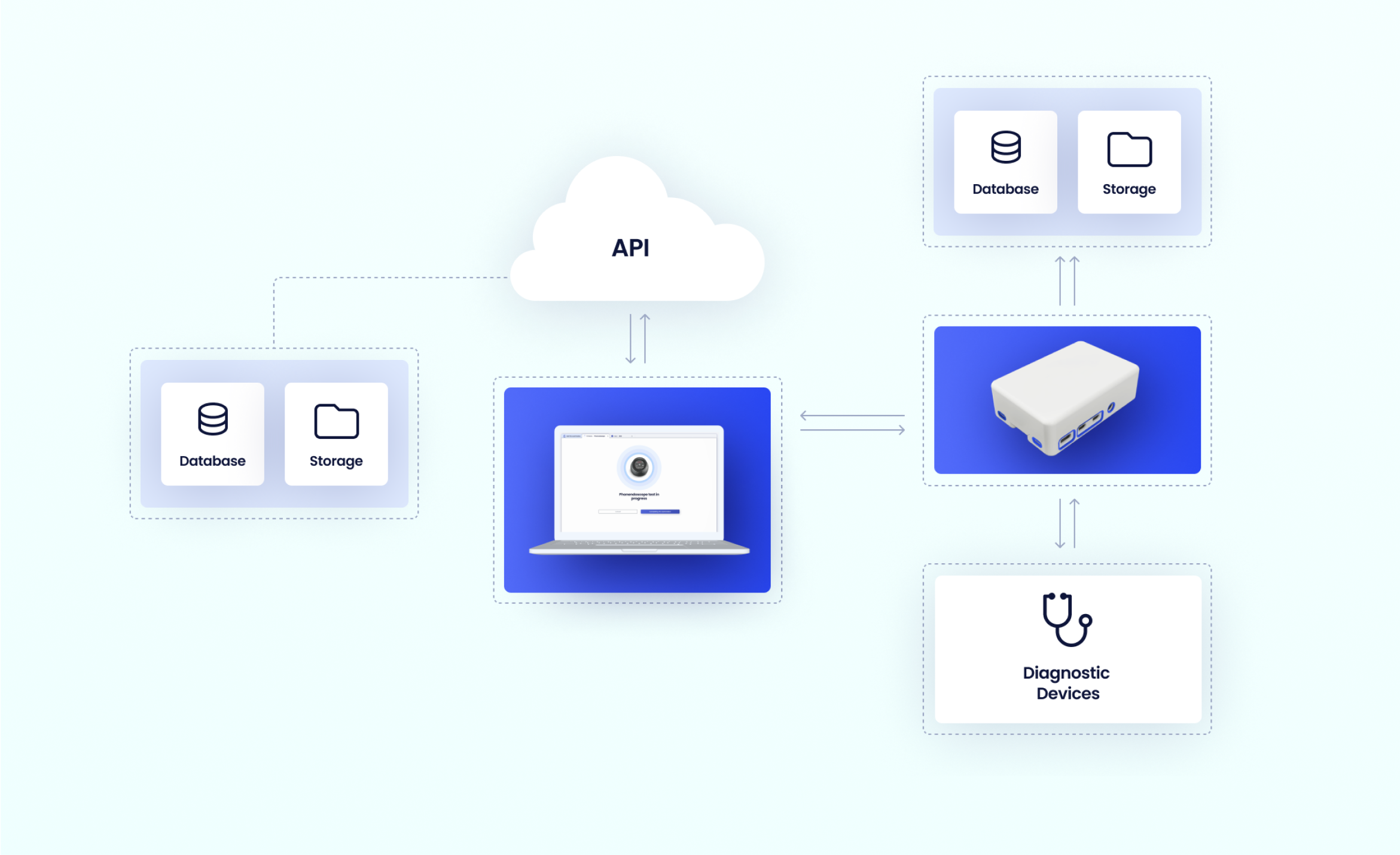
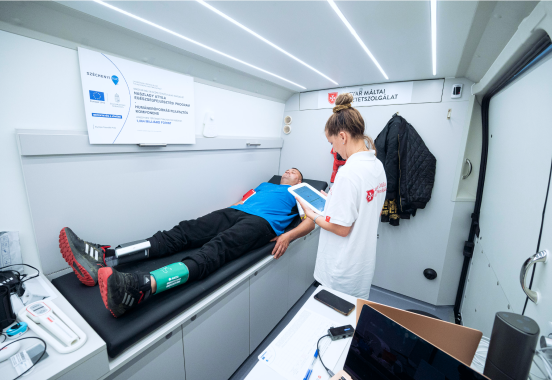
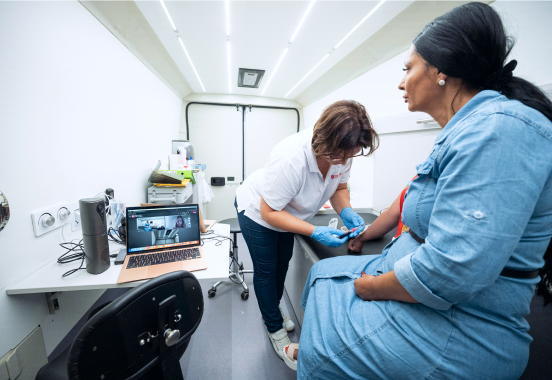
Feedback
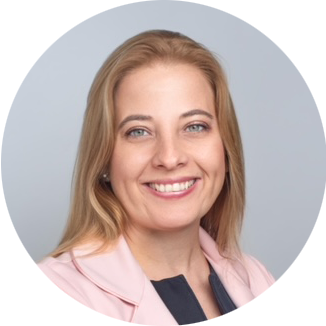
dr. Rita Kovács
Medical Director
Further work



Request Your Free Consultation
Let our experts delve into how digital solutions can streamline your organization's efficiency
Request a Callback